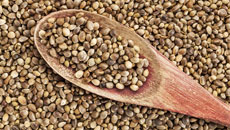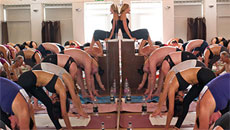Food is intrinsically connected to all cultures around the world. Some say that you are what you eat and others use the experience of food to taste, touch, smell, feel and enjoy life’s experiences. Across all rituals and traditions, eating together gives us a chance to connect, re-connect, and spend quality time with our family and loved ones.
Many rituals throughout time have involved the growing, preparing, gathering and eating of food together. These communal experiences in religious temples and Mosques can be seen in the gathering of a ‘Langar’ at the Gurdwara or the ‘Priti Bhojan’ of the Mandhir. For many people, food is also a way to seek enjoyment, connection and it is a means to nurture their relationships.
In the South Asian community, food is used as a way to nurture and entertain. We’ve all had Aunties and Uncles saying, “Eat Betaa, Eat!” as they force a plate of food in your hands. This gesture is truly a way in which our elders show their care, concern, and attention towards loved ones.
Food is a way of not only feeding our stomachs, but our hearts, our minds and our souls. Unfortunately, as our lives have gotten busier, many families have begun to eat meals less and less together. Struggles such as shift work, different schedules, duties and roles and the realities of family members having different needs, has forced families to eat their ‘Roti’ at different times.
Families are increasingly eating, consuming and living in an unconscious manner. Many of us are guilty of going through the daily grind of work, chores, parenting, and the cooking of meals and feel exhausted by the end of the day that we surrender to silence and distraction. For example, many of us are guilty of watching television while eating our meals.
By doing so, we are trying to catch up on daily shows such as Indian dramas while trying to feed ourselves. But have we become THAT busy that we’re still multi-tasking even when we are eating? We also tend to entertain or distract ourselves with technology instead of with each other while trying to nourish our bodies.
Studies are proving that unconscious eating tends to force us to eat more than we really should be and that our quality time with loved ones is becoming nonexistent. The necessity to nourish our bodies and our relationships at an emotional, mental, and spiritual manner then also becomes neglected. So if the adage those families that eat together stay together holds true, then we have just cause to be worried. The fact is that the activities of growing, preparing, gathering and eating together as families are on a scary decline towards extinction.
With the constant chaos in our busy lifestyles, change in traditional roles, change in eating habits, change in types of food consumed and global access, and our increase d dependence on technology – these changes have gotten in the way of our relationship with our love ones and particularly to food.
Our relationship with food is a direct indicator of how healthy we truly are and unmistakably the health of our bodies, minds, spirits and relationships are at stake. Marriages and families are at risk of breaking up because we are simply not growing together and remaining connected as a unit. Taking this one step further, it could be proposed that as a society, we have gone into a state of unconsciousness or into auto pilot mode.

Most of us are rushing out of our beds in the mornings with a list of things that we have to get done before lunch time and more of us are blindly rushing straight into the coffee shops or a drive-thru such as Starbucks or Tim Horton’s to have our first and most important meal while we are driving. So we are truly beginning to lose our sense of feeling connected with our loved ones and with the food we consume as well. So across the world, it is a global epidemic of families who are struggling to remain conscious of what we put in our mouths and how that food actually got to our plates.
How do we return to the simplicity of eating and sharing meal times together? How do we start to feel connected to our ‘Roti’ again? Can we get back to basics? Yes, I think so. There is hope. Traditionally, in the South Asian kitchen, the woman’s role has been to prepare and serve the families’ meals, while men have other outside work-related duties. But as times are changing, so are our traditional roles. Does this impact our traditions or do we adapt and change with the times? Possibly. But either way, the changes in traditions, rituals, roles, eating habits, and our connection to food can change back to the basics by our own initiative and by questioning, ”What are we truly hungry for?”
Food is a way of maintaining our past cultures, traditions, rituals and an avenue to re-create new ones. It not only nourishes our bodies, but can heal, and help to define what ‘good health’ truly means to us. How healthy a person is physically, mentally, emotionally and spiritually, also determines how close and connected we are to food, to ourselves, to our families, to our friends and ultimately to our community.
How do we get back to the basics? Here’s a list of my recommendations:

1. Due to technology we may be logged on, but we have become disconnected. Let’s log off from technology and get physically, emotionally, mentally, and spiritually connected to each other – at least during our meal times. This means no television, computer, video games, cellular phones, iPads etc.
2. Let’s get educated ourselves and help to educate our children as to where that ‘Sabji’ or vegetable came from. How did it land on our plates? Can our kids start to visit local community gardens or farmer’s markets? Can we allot a corner of our backyards to grow fruits and vegetables in our own gardens?
3. This education serves as awareness and a sense of connection to the process of growing, preparing and gathering our food staples. Education as well as prioritizing our quality time with loved ones at least during ‘Roti’ time will help to save some families and marriages. We can continue to preserve and nurture ourselves and loved ones and how we relate to each other this way.
4. Let’s limit our consumption of fast food and restaurant offerings and start to cook and prepare meals together. If we plan out meals, the cooking of our meals should not take more than 20 to 25 minutes to actually prepare. So we truly aren’t losing time, especially if you compare the time it takes to order and have food served by others. Also, we may take the effort to eat different foods, but we’re losing the true essence of authentic foods around the world. Most local restaurants do not serve ‘real authentic’ Italian, Chinese, Thai or Indian food anymore. Does that mean that we simply banish visiting restaurants? Certainly not, but we can limit and balance our consumption there.
5. We must prioritize our importance of eating healthier and spending more time with our loved ones during this crucial daily activity. Each of us has been given the gift of 24 hours each day – no more and no less. So what we perceive as important can and will get achieved. Also this activity must be a time to remain personal, positive, and in the present.
6. Let’s start some dialogue of what we are each truly hungry for. Many people have very unhealthy relationships with the role that food plays in our lives. By depending too much or too little on food, some have skewed perceptions of the role food plays. So in these extreme cases, food is replacing the role of something else and needs to be looked at so we can prevent and heal such serious issues.





